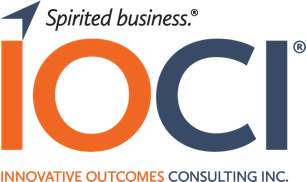
This is the first of a two-part series published this week by IOCI.
Precedent-Setting Crisis
Even the most seasoned leaders may have been caught off guard by the sudden and rapid spread of the COVID-19 virus. Many quickly realized that their best laid contingency plans had not accounted for the series of events that would follow – a rapid and extended lockdown of the population to restrict movement and spread of the virus that would close all but essential services. Many businesses were forced to close, and others had to shift to a remote working arrangement. Business owners and organizational leaders were faced with laying off many or all of their employees or shifting them to work virtually to keep operating.
Hardship and Uncertainty
These conditions only begin to describe the hardship and uncertainties that every aspect of societies around the world are facing. When asked what is essential to lead through crisis, Marialane Schultz, CEO of IOCI says “these uncertain times call for capable, flexible and emotionally grounded leaders who can help design and communicate a thoughtful way forward that evokes trust, hope and purpose in those they lead. It’s an opportunity to show how we can emerge even stronger and thrive together even in the face of adversity.”
Success Factors in the Face of Adversity
“These uncertain times call for capable, flexible and emotionally grounded leaders who can help design and communicate a thoughtful way forward that evokes trust, hope and purpose in those they lead,” says Marialane Shultz, CEO of IOCI
The Center for Creative Leadership (CCL) recently conducted research on successful executives in North America and Europe and found that the key success factor that was more frequently cited for North American managers was their ability to develop new capabilities or adapt to new challenges and changing conditions. They specifically cited the following skills as core to leader success:
- Adapt to the changing external pressures facing the organization.
- Adjust their management style to changing situations.
- Accept changes as positive.
- Revise plans as necessary.
- Consider other people’s concerns during change.
There’s Leadership Strength in the Collective “We”
IOCI’s Schultz adds “that one more key factor is taking action that is focused on community-wide or enterprise-wide interests and impact. In other words, maintaining a focus on what is greater than ourselves. It is too easy to slip into a self-interest state-of-mind when things get tough. We need others around us who are courageous enough to tell us when we are off course. The old speak truth to power concept.”
See our next post later this week on behaviors and attitudes strong leaders need to exhibit in trying times.
For more leadership insights, check out these related posts:
Marialane Schultz is the founder of IOCI. She helps individuals and organizations perform at their best, do meaningful work and be impactful through customized coaching and consulting engagements.

